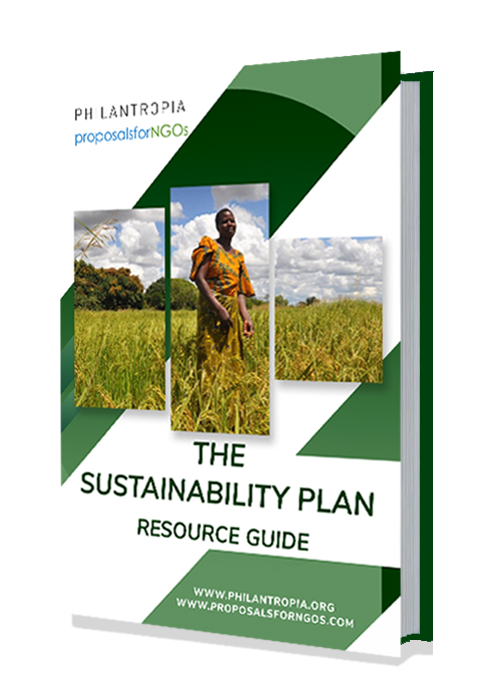What is NGO policy?
“NGO policy” can refer to the policies and regulations that govern the operations and activities of non-governmental organizations (NGOs). These policies can vary widely from one country to another and even within regions, as local laws, cultural norms, and the specific focus and mission of the NGO often influence them.
Here are some common aspects of NGO policies:
- Registration and Legal Status: Most countries require NGOs to register with the government or relevant regulatory bodies to operate legally. The registration process often involves providing details about the organization’s mission, structure, and leadership.
- Funding and Financial Accountability: NGOs may be subject to policies related to their funding sources, financial reporting, and accountability. This can include rules about fundraising, transparency in financial matters, and managing donor funds.
- Governance and Leadership: NGO policies may outline the structure of the organization, including the roles and responsibilities of board members, officers, and staff. They may also include guidelines for conflicts of interest and ethical conduct.
- Program and Project Implementation: NGOs often have policies related to their core activities, including the development and implementation of programs and projects. These policies may address issues such as program design, evaluation, and impact assessment.
- Human Resources: Policies regarding the hiring, management, and treatment of employees and volunteers may be established to ensure fair and ethical practices within the organization.
- Advocacy and Lobbying: Some countries have specific policies regarding NGOs’ advocacy and lobbying activities, which can include restrictions on political involvement or advocacy on certain issues.
- Compliance with Local Laws: NGOs are expected to comply with all relevant laws and regulations in the regions where they operate, and their policies may reflect this commitment to legal compliance.
- Reporting and Documentation: Many NGOs are required to submit periodic reports to government authorities or regulatory bodies to demonstrate their activities, financial status, and impact. Internal documentation and record-keeping policies may also be in place.
It’s important to note that the specific policies and regulations governing NGOs can differ significantly depending on the country and local context. NGOs frequently have to juggle a complicated web of legal and regulatory obligations, varying in severity and enforceability.
NGOs Policy
Non-governmental organizations (NGOs) typically follow a wide range of policies to guide their operations and ensure they align with their mission and values.
Some of the key policies that NGOs often adopt include:
- Gender Inclusion Policy: This policy outlines the organization’s commitment to promoting gender equality and ensuring that gender considerations are integrated into all aspects of its work. It may address issues such as gender-based violence prevention, gender-responsive programming, and gender diversity within the organization.
- Child Protection Policy: This policy focuses on safeguarding the well-being and rights of children involved in or impacted by the organization’s programs and activities. It includes guidelines for preventing and responding to child exploitation, abuse, and neglect.
- Governance, Ethics, and Standards of Operation (GESO): This policy sets out the organization’s commitment to good governance, ethical conduct, and adherence to international standards of operation. It covers areas like transparency, accountability, integrity, and responsible use of resources.
- Human Resources Policy: This policy covers various aspects of managing the organization’s workforce. It includes recruitment and hiring procedures, compensation and benefits, professional development, employee rights, and workplace behavior expectations.
- Financial Accountability and Transparency Policy: This policy ensures that the organization’s financial operations are conducted with integrity. It includes guidelines for budgeting, financial reporting, auditing, and the responsible use of funds.
- Environmental Responsibility Policy: NGOs that focus on environmental or sustainability issues may adopt policies that address their own environmental practices, including waste reduction, energy efficiency, and sustainable procurement.
- Data Protection and Privacy Policy: A Data Protection and Privacy Policy in an NGO outlines the organization’s approach to managing and safeguarding personal data and respecting the privacy of individuals associated with the organization.
- Safety and Security Policy: For organizations operating in high-risk or conflict-prone areas, this policy covers measures to protect the safety and security of staff, volunteers, beneficiaries, and assets.
- Crisis Management and Emergency Response Policy: This policy provides a framework for responding to crises, disasters, and emergencies, including procedures for evacuation, communication, and coordination.
- Donor Relations and Compliance Policy: This policy governs the organization’s interactions with donors and funders. It includes guidelines for proposal development, grant management, and compliance with donor requirements.
- Code of Conduct: A code of conduct outlines the ethical behavior and values expected of all individuals associated with the organization, including staff, volunteers, and partners.
- Advocacy and Lobbying Policy: NGOs engaged in advocacy work may adopt policies to guide their engagement with governments and legislative bodies while ensuring compliance with relevant lobbying laws and regulations.
- Stakeholder Engagement Policy: This policy outlines how the organization engages with beneficiaries, local communities, and other stakeholders. It emphasizes the importance of involving these groups in decision-making processes.
- Monitoring and Evaluation Policy: This policy provides guidelines for monitoring and evaluating the impact of the organization’s programs, ensuring data-driven decision-making and program improvement.
- Prevent Sexual Exploitation and Abuse (PSEA) Policy: The Preventing Sexual Exploitation and Abuse (PSEA) Policy provides assistance to vulnerable populations as it aims to protect beneficiaries, staff, and other individuals from sexual exploitation and abuse by personnel associated with the organization.
- Anti-Corruption and Whistleblower Policy: Organizations may have policies in place to prevent and address corruption, including mechanisms for reporting misconduct (whistleblowing).
- Partnership and Collaboration Policy: For NGOs that work with other organizations, this policy sets out guidelines for building and maintaining partnerships and collaborations, including principles of fairness and shared responsibility.
Why is it important?
NGO policies serve as a foundational framework for responsible and effective operations. They protect the organization, beneficiaries, and the environment while also demonstrating a commitment to ethical conduct and transparency. Here are some reasons why it is important:
- Donor Requirements: NGO policy is important because donors often require them to demonstrate transparency, accountability, and adherence to ethical and legal standards to ensure that their contributions are used effectively and responsibly. These policies, which cover topics like governance, financial openness, human rights, gender equality, environmental stewardship, and ethical behavior, are essential for reassuring donors that their contributions will be used to further the organization’s mission and foster trust, credibility, and long-lasting relationships.
- Transparency and Trust: Transparent policies foster trust among donors, beneficiaries, and the public. By openly sharing their commitment to ethical standards and responsible practices, NGOs demonstrate their integrity and gain credibility.
- Legal Compliance: Many NGO policies are rooted in international legal standards, ensuring that organizations operate within the legal boundaries of the regions in which they work. This minimizes legal risks and consequences.
- Good Governance: NGO policies promote good governance by establishing principles and guidelines for ethical leadership, decision-making, and conflict resolution. They prevent abuses of power and promote fair and ethical practices.
- Preventing Conflicts of Interest: Policies like the Conflict of Interest Policy help prevent situations where individual interests could compromise the organization’s objectives. This protects the organization’s integrity and ensures that resources are used for their intended purposes.
- Protecting Vulnerable Populations: Policies such as the Safeguarding and Child Protection Policies emphasize the importance of protecting the well-being of vulnerable populations that NGOs often serve. This ensures that the organization acts in its best interests.
- Gender Equality: Policies may address gender equality and non-discrimination, promoting diversity and inclusivity within the organization. This is not only a moral imperative but also enhances the quality of services and decision-making.
- Environmental Responsibility: NGOs working on environmental issues may have policies addressing responsible environmental practices. This reflects a commitment to sustainability and reduces the organization’s environmental footprint.
- Ethical Conduct: Ethical codes of conduct guide the behavior of staff and stakeholders, setting high standards for professionalism and integrity. This fosters an organizational culture that values ethical behavior.
NGO policies are essential frameworks that govern their operations, ensuring they function in a responsible, transparent, and accountable manner. These policies cover various aspects, including registration, funding, governance, program implementation, human resources, advocacy, and compliance with local laws. NGO policies help instill trust among donors, beneficiaries, and the public, emphasizing good governance, ethical conduct, and social and environmental responsibility. NGOs, with their extensive global reach and expertise, play a vital role in influencing policy-making at local, national, and international levels. They serve as a link between civil society and policymakers, organizing public opinion, supporting international cooperation, and holding governments responsible for the implementation of policies, making them important participants in the world of international affairs.



Alvin S. Lablah
Thanks so kindly. The content helped answered my question.
Club Rafiki Youth Center
Thank you for this great improvement documents